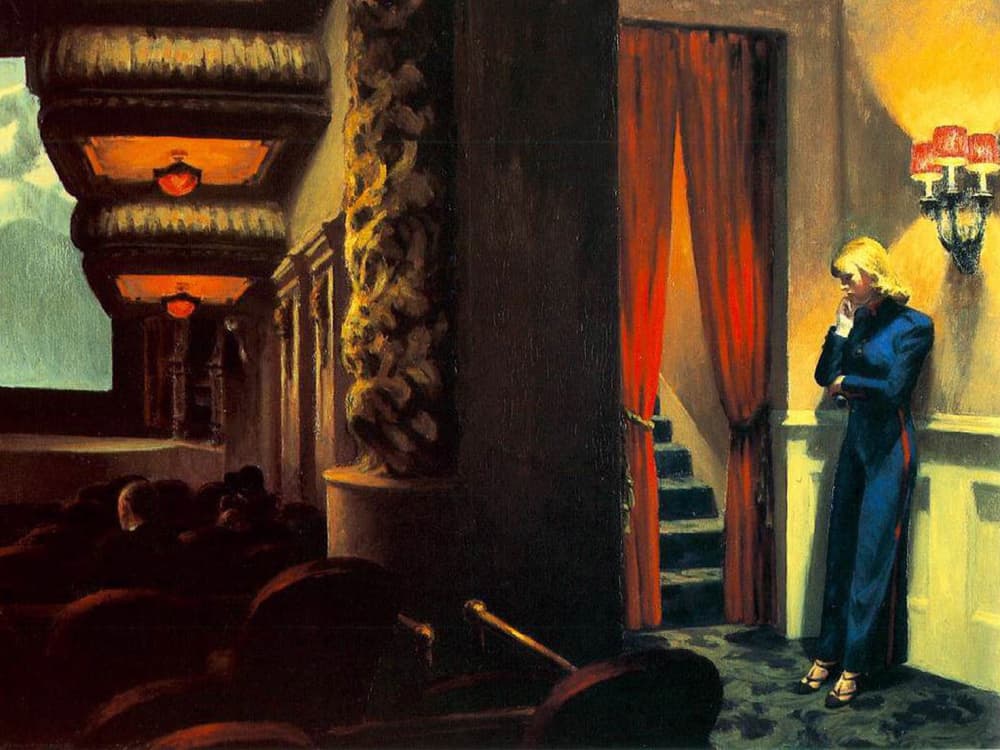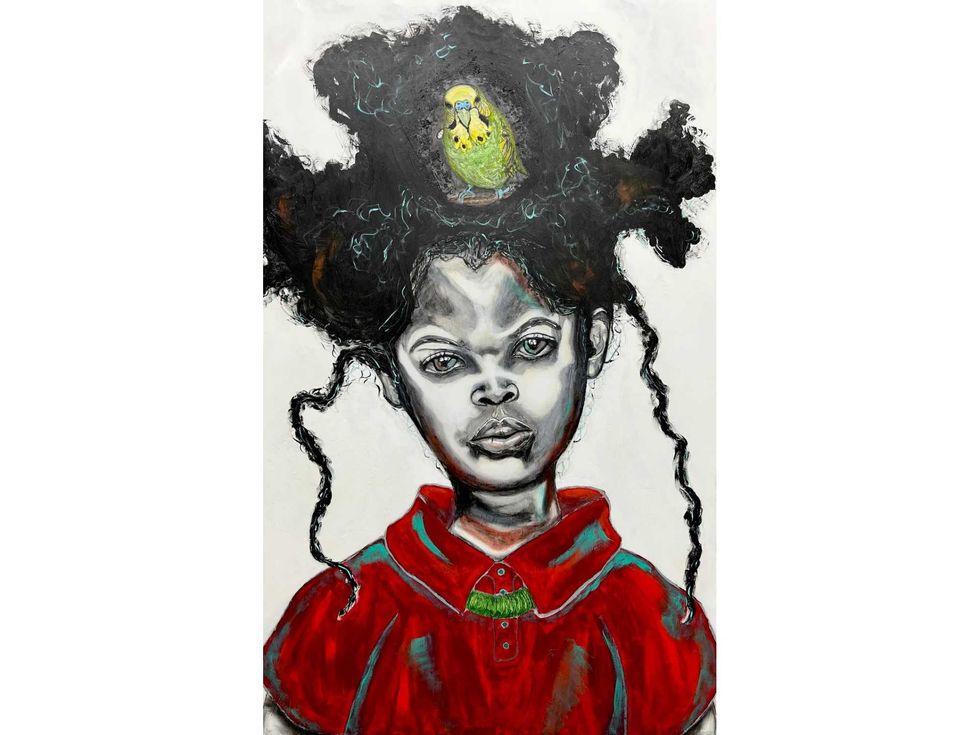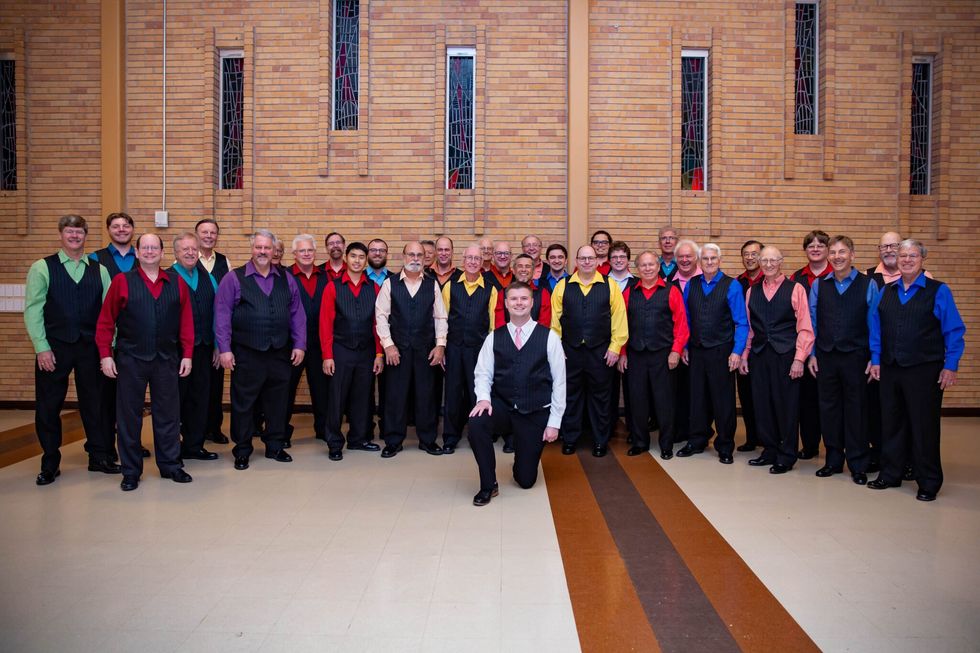Training the audience
A plea from a Houston usher — I "invite" you to be more rowdy
 Being a usher isn't necessarily a thankless job, but it's an often forgottenone.Edward Hopper, "New York Movie," 1939
Being a usher isn't necessarily a thankless job, but it's an often forgottenone.Edward Hopper, "New York Movie," 1939 Don't just get up. Storm the stage.
Don't just get up. Storm the stage. Carry your favorite performer to Cabo.RoadsOfStone
Carry your favorite performer to Cabo.RoadsOfStone She's likely being invited to turn off her phone.
She's likely being invited to turn off her phone. No, you're not bringing this back to your seat.Photo by Navin75/Flickr
No, you're not bringing this back to your seat.Photo by Navin75/Flickr
Behind every great Houston arts organization and institute is most likely a few, group, or horde of volunteers. The ways to contribute to Houston arts are as varied as the arts organizations themselves, from the person who passes out maps for a few hours at The Bayou City Art Festival, to the woman who works 50 hours a year as a clerk in the Houston Symphony gift shop, to the expert docent who logs over 200 hours a year training and leading groups through Rienzi.
And then there’s me. I’m an usher.
While some of the performance spaces in town pay their ushers, many use volunteers. By arriving one to two hours before the performance, helping to seat patrons, and knowing fire exit locations, ushers help the performance run smoothly and usually, though not always, can sit and watch the show for free. It’s not a difficult job, but it is necessary.
The current visual and sound technology of film is astounding, and those sexy blue aliens might seem next to you in the movie theater, but a live performance, be it dance, drama, or music, is still such a pure form of art, immediate and alive, never to be recorded or captured exactly the way you experienced it.
There is murder, love, betrayal, blood, sex, dancing, joy and loud music happening before you, maybe only a few feet away, but the usher is there to explain the rules of this world.
Sit there. Don’t eat. Don’t photograph. Turn off your cell phone. Keep your voice down. Don’t touch. And above all, unwrap those damn wrapped candies early. If you do these things, you might survive your journey into Oz, the Underworld, Illyria, the Land of Sweets, Never Never Land, the planets of our solar system or a Florida trailer park.
Not that we can order audience members in quite those words. The rules are usually voiced as suggestions. A few years ago the go-to verbs at one theatre were “invite” and “enjoy.”
Sentences could never be phrased in the negative; Instead, every command turned into an invitation to a great party, usually in the lobby. “I’m sorry but the theatre is still closed, please wait in the lobby” becomes “we invite you to enjoy the lobby,” “the bathroom,” “the staircase.” One year there was much invited staircase enjoyment. “We invite you to enjoy your food and beverage in the lobby” is usher speak for “Oh my God, you Philistine peasant. You cannot bring in a beer and an order of buffalo wings to gnaw on during Waiting for Godot.”
Usually dealing with the audience is easy. Sometimes people are a little drunk or obnoxious. Sometimes they believe they are flying Southwest and can sit wherever they want.
A few times I’ve spotted individuals having whispered conversations with invisible friends in the empty next seat and one former house manager tells a great story about a woman who always bought an extra ticket for her fur coat and no usher or standby ticket holder was ever getting that fur’s prime seat.
Like amateur FBI agents, we do have to take down a rouge camera phone user on occasion. We have to politely “invite” them to “enjoy” deleting their photos because the whole set is copyrighted and with their photo they have just stolen a copy of the director’s vision of Hamlet. . .In Space.
Many times the ushers or house managers themselves are much more intense than the audience members. The scariest person in the theatre is sometimes the retired woman of a certain age who probably ushered the very first performance of Medea: Well that’s the way we did it back when I was a girl in 431 BC and that’s how we should to it now.
Some of the theaters and house managers are obsessed with the dress code. For some safety is primary. Those are the performance centers that fixate on shoes. If a dress shoe came with a steel-tipped toe and hard hats came in black with a little bow, they would be the required for ushers. For other theaters uniformity is the focus and all the ushers dress alike in black jackets and bow ties. If Hobby Center ever declares war on the Alley, their troop uniforms are ready.
For other managers the casualness of attire of some theatre goers must be combated and their usher dress code is the last line of defense in keeping the audience from attending in swim suits. I am currently in a passive aggressive battle — that he is unaware of — with one house manager over panty hose. I’ll wear them in the heat of Houston Augusts when he will.
Overall, everyone and thing is nice and civilized. The house managers train the ushers, and the ushers tame the audience. But my years volunteering as an usher have made me think maybe we’ve all been trained to the point of passivity. The play is inspiring, the dancing death-defying, the music rapturous, or maybe they all suck. It doesn’t really matter either way because the audience will give a polite golf clap to anything.
If they genuinely like a performance, Houston audiences stand in ovation at the end. If it was nice but forgettable, then they will clap with modest enthusiasm. If they dislike it, they’ll leave during intermission. But shouldn’t a passionate performance create a passionate response, even if it comes in uncouth forms?
A discerning art lover in Shakespearean London could take his pick from an afternoon watching Henry V, bear-baiting, or a public execution. And if the play and performances were not up to the artistic achievement of dogs attacking a chained bear, the fruit sold at the theatre wasn’t just for eating. It was also for throwing. Concert goers in the 19th Century, may have been much better dressed then their 21st century sandal-wearing counterparts but when they loved or hated the latest concerto, they shouted, clapped, and made loud comments in the middle of the performance.
I’m certainly not calling for lawlessness, just the occasional rowdy audience. I’d rather not break up brawls between actors and raging audience members, though that might be fun. But, perhaps it’s time for audiences to rebel a little and show some of the emotion the performers do. Love the performance? Shout it out. The dance bores you into a stupor? Don’t just sleep there; storm out. The leeching spouse in the play reminds you too much of your own marriage? Don’t weep silently, bawl away.
I shouldn’t wish extra work for my brother and sister ushers over at the symphony, but if the Ima Hogg Young Artist winner so moves you, don’t just stand. As one impassioned audience, rush the stage. Put him on your shoulders. Stream out of Jones Hall onto Texas Avenue, and go buy him a fish taco at Cabo.
Give me more work, Houston art lovers. Don't be so civilized.





